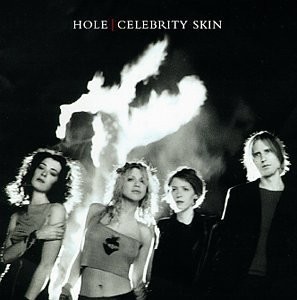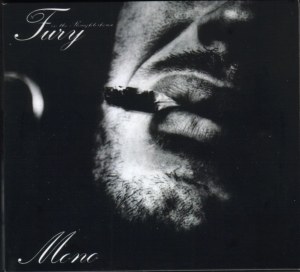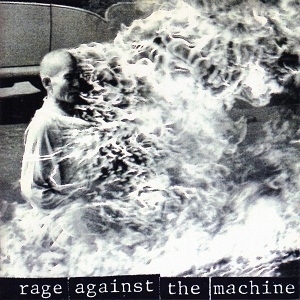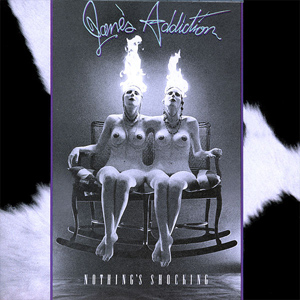My wife and I are only six years apart in age, and yet our childhood pop culture was completely different.
For example, I know if she starts singing along to a song I don't recognize, it's a 1970s radio hit. She knows all about The Partridge Family and Three's Company, shows I've heard of but never seen. Minstrel hobo chic is her fashion jam.
But move into the 1980s, and the roles reverse. She's never seen Fraggle Rock or Duck Tales. Doesn't know Bon Jovi or Journey (or Def Leppard or R.E.M. or Bauhaus or New Order or....).
So we've made an effort to introduce each other to our respective pop landscapes. It's interesting to find places where we overlap (MacGyver) as well as the gaps (I'd never even heard of The Rockford Files before her, and she had no clue why I was so excited to hear that She-Ra was getting rebooted on Netflix).
All of which is to say, we watched Iron Eagle this week, as part of introducing her to 80s movies I loved as a kid. And it did not hold up well.
What I remember as a scrappy-kids-rescue-the-grownups movie, a sort of Goonies adventure with higher stakes and fighter jets, is actually a harrowing tale of how a group of teenagers infiltrate a military base, steal a bunch of weapons, then invade a sovereign country, kill dozens of members of its military, and destroy a major oil refinery, all for one downed American pilot (who was violating the country’s airspace).
Questionable morals aside, that might be forgiven, if it were at a good movie. But...it’s not. The Eagles are thinly sketched, the lead has no charisma, the timeline is way too short (only three days between “go away kid” and “you’re the finest young man I know”??), and the climatic battle with the “villain” is just ridiculous.
Only Louis Gossett Jr comes out well. His character isn’t written any better than the others, but he’s just so damn good as an actor that he breathes life into Chappy through sheer force of will.
But! We talked it over, and we think the movie's salvageable. At this point it'd be a reboot, but that's ok; it gives us license to do the extensive rewrite the movie needs.
What to Keep
Chappy. Chappy Chappy Chappy. He's the real heart of the movie, the mentor tying everything together, and that needs to stay. We need someone with the right mix of charisma, maturity, and gravitas that can play him, like Denzel Washington.
We also keep the central conflict of the story: Military pilot is shot down in a hostile country and held captive. Their eldest kid and that kid's friends -- with Chappy -- plan and execute a bold rescue mission.
I also like the story of how Chappy first met Doug's dad. It's sad, but true, that a Black man getting mistaken for janitorial staff is just as plausible in 2021 as it was in 1986.
We also keep the idea of The Eagles Flight Club as a place where certain military brats hang out, and as a group of friends to help with the rescue.
And we'll keep the general sequence of how the final third of the movie plays out, with Doug ending up on his own for the rescue mission (accompanied only by Chappy's voice) after things go wrong, the attempted blackmail of the country's leaders to free his dad, and the need to evade a pursuing force once he's got his dad in the plane with him (but more on that later).
What to Change
So, we've kept the bones of the story: A military-brat teenager is going to get help from his group of friends and an older pilot to go on a daring rescue mission in a foreign country using aircraft. But we need to shift things so that it's both more realistic and less jingoistic.
We start by altering the nature of the Eagles Flying Club. Instead of being a bunch of military brats who have "the whole base rigged," it's a group of kids who work on and fly old planes. That airplane graveyard that Doug takes his date to? That's their source material, where they go to get good deals (because their parents don't make a lot) on parts and planes that they then fix up and fly. So right away, we position Doug and his friends as clever, hardworking underdogs, not bratty teens.
We also need to up the diversity in the casting. Half of the Eagles should be women. There should be more than one PoC. The US military (and thus, military families) is diverse, and we should show that on screen. Ideally, the Doug character himself is not White.
Okay, so now we've got the casting, and the reason the friends hang out put together. Now we give them an early challenge, to show who they are and how they work together: the Snake Race scene. But we make a few alterations: the bullies are not just bullies, they're fellow military brats. But their parents are wealthier (higher-up officers), so the planes they fly are expensive and new, not the buckets of junk the Eagles cobble together. The main bully got in to the Air Force Academy, while Doug was shut out.
So when the main bully taunts Doug about his rejection letter, it's the culmination of a lifetime rivalry for these kids. And when Doug accepts his challenge to race, the stakes are high in terms of pride: it's the Eagle's junkyard plane against the bully's new Cessna. No motorcycles involved.
Doug still has to take the (shorter) risky route, because the bully's new plane flies straight and fast down the (longer) easy way. And that's how he wins the race, because he and his friends have modified the old plane to perform better under such stressful conditions.
Just a few small tweaks, and we've taken this scene from "why is this in here? is that a motorcycle in a movie about planes?" to "oh shit there's no way they can beat that fast new plane in that hunk of junk."
Then, just as they're celebrating their victory, they get the news: Doug's dad has been shot down.
Here we keep a lot of the beats from the movie, but we spread them out over time, and we don't have anyone just waltz into a Situation Room and get access to Top Secret reports and a high-ranking Air Force officer. The Air Force stonewalls Doug and his family; they get most of their information from news broadcasts (yay, journalism!). All they know is where he got shot down, and why, and that the government is negotiating for his release (or worse: the government is not negotiating for his release, because "they don't negotiate with terrorists, and that includes rogue states").
A month passes. Not three days, not a few hours, a full month. Doug spirals, spending more and more time in the simulator, ignoring his friends, going through the motions with his family.
It's Chappy that pulls him out of it. Chappy that chews him out after that he takes up the Colonel's simulator time (and Doug is mouthy about it). Chappy that takes gives him a job, working with him at the local commercial airstrip.
And it's a story from Chappy, about a rescue op that almost went bad, that inspires Doug to mount a rescue for his dad. Not one that uses military equipment, though. What he imagines is a stealth mission, where they get in and get out without being caught or recognized.
Because the head of the military in the country that's holding his dad is a fan of...old aircraft. He has a collection of old planes that he's bought from various places over the years, painted and fixed up. He likes to take them out himself, without any guards, just for the thrill of it.
So that's how the Eagles plan to get into the country's airspace: They build copies of some of the planes in the enemy general's collection, so they can pretend to be just him on a joy ride.
No theft of military hardware needed, this time. No hijinks on the base that would end up with the kids spending their lives inside a military prison if they got caught. Just good old fashioned elbow grease and research.
They do still need some military intelligence, though, to track where Doug's dad is being held and the disposition of the country's air defenses (so they know how to fool them). This they have to steal -- or maybe Chappy provides it? -- but that's it.
Chappy's role is still advice and planning. He knows the hardware they'll be up against, knows how to teach them to avoid triggering any reaction that will get them killed. But he doesn't have to aid and abet them ripping off the US military, this time.
He also doesn't go. His role during the mission is going to be monitoring everything from the ground, pulling up fresh intel as they need it, and coordinating everyone. He doesn't fly any of the old planes they fix up. That's what the Eagles are for.
This lets us continue to fill out the Eagles as characters (because they're in the film more) and gives us more possibilities for the rescue (because they're part of the mission now).
So, they spend weeks (not days) planning the rescue, and working on the planes (to make them match the enemy leader's collection). They contact other Eagles Flying Clubs around the world -- thanks to the internet, there's franchises all around -- to have a place to stop, refuel, and repair on the way from the US to the country where Doug's dad is being held.
Just as they're putting the finishing touches on the plan, that's when they hear that Doug's dad is going to be executed in three days. So we get the scene where Doug can't sleep and Chappy shares war stories with him, but this is after their relationship has been built up over time, so it's both more believable and more poignant.
They set off! Things are bumpy from the beginning, of course. One of the old planes starts having engine trouble over the Atlantic, and only just touches down on the borrowed runway in rural Spain (cue shots of sheep running from the incoming planes). So they have to leave it behind, along with its Eagle pilot (to repair it and fly it home).
They lose another plane as they're crossing the Mediterranean, getting close to the country where Doug's dad is being held. A sudden fog blows in, and one of the plane's instruments starts malfunctioning. Unable to see, its pilot is forced to climb up and out of the fog, which uses up too much fuel. It's forced to turn back.
Only Doug's plane is left. He thinks about turning back himself; there's no way the plan will work with just one plane. Chappy gives him the "I'm right there in the cockpit with you" speech, bolstering his confidence.
He makes it over the border successfully, and when contacted by ground control manages to fool them into thinking he's part of the leader's entourage. He heads for the prison.
This is when they switch deceptions (and where the other planes would have been handy). As he closes into the prison, Doug switches on an electronics package his Eagles worked up. At the same time, another Eagle on a fishing boat off the coast unfurls a huge makeshift radar dish on deck, and activates another one. We see the air control at the base near the prison react to seeing an American warship appear off their coast, followed by a radar ping off an F-18 (!) deep in their airspace.
Then Doug contacts the prison, issuing his threat: He's part of a strike force sent to get his dad out. If the captured pilot isn't put in his flight suit and set on the tarmac within an hour, the warship will start launching cruise missiles at strategic targets in the country.
The prison scrambles to comply, while contacting the leader for instructions. The leader is skeptical; he orders them to go ahead and release the American, but to set snipers over the runway and prepare their own fighter craft.
Hearing that they're moving his dad, Doug relays the next part of the plan: His fighter is going back to the warship, and the pilot will be picked up by a civilian aircraft. He switches off his electronics package, and the "F-18" vanishes from their radar.
This makes the leader deeply suspicious. He orders visual confirmation of the warship's presence. A scout plane is duly launched, headed to the coast to confirm.
Meanwhile, Doug prepares to land. Watches them take his father out of the prison, shove him into a jeep, and wheel him down the runway. He makes his final turn, landing gear down.
And then the scout plane spots the "warship" in the bay: Just a fishing boat, with a smiling, waving, Eagle in it.
The leader orders the snipers to fire, just as Doug touches down.
His dad falls, shot through the shoulder. Panicked and enraged, Doug lifts off again, followed by machine gun fire. He looks back at the runway, sees his dad moving, pulling himself along till he's behind the jeep, using it for shelter.
Doug can't leave him there. Thinking quickly, he flies back over the runway, a little down from where his dad is. Drops his spare fuel tank, which explodes on contact, creating a wall of fire on the tarmac that obscures the vision of the snipers. Under its cover, he's able to land, grab his dad, and take off again.
But they're not safe. Three enemy fighters from the base set off in pursuit. Doug doesn't have any weapons, so it's just his flying against theirs, as they race for the coast.
And it seems like he's bested them! They're almost to the Mediterranean, when six more fighters show up ahead of them on radar. They're caught.
That's when we hear the American accent crackle over the radio, letting the enemy fighters (and Doug) know the six planes ahead are real F-18s, and suggesting they do not engage with Doug's plane.
The enemy fighters break off, not wanting to take on such odds. The Americans offer to escort Doug back to base. Doug follows, though he wonders what base they're referring to.
...Which is revealed as they pass back through the fog near the coast, and come out the other side, where an aircraft carrier is waiting!
Along with Chappy, who "convinced a Navy friend of his" who "was going to be in the neighborhood" to let him come along (and bring his carrier).
And that's how they work up the cover story for the rescue: The aircraft carrier strike group carried it out, not the Eagles. This gives the military the win, and lets the Eagles off the hook for the whole thing.
There you have it! An updated Iron Eagle, ready for remake in the 21st Century. We keep the emotional heart of the story, and many of the beats, but we deepen the characterization, broaden the representation, and up the realism.
sits by phone, waiting for Hollywood to call




